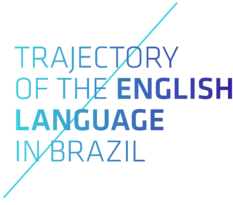Nísia Floresta
Dionísia was born on October 12, 1810. Ahead of her time, she was one of the first Brazilian journalists. Her articles spoke about gender inequality in imperial Brazil, but also about other injustice, such as the exploitation of blacks and indigenous people. In order not to run the risk of being censored, she published many works under the pseudonym Nísia Floresta Brasileira Augusta (a name in honour of her admiration for Brazil).
At the time, it was believed that a woman should only take care of the family and the home, and expectations for Nísia were no different: she was forced to marry at the age of thirteen. She resisted and left her husband three months later. Intellectual and romantic, she preferred to choose the love of her life, Manuel Augusto de Faria Rocha, a law student.
Nísia understood that only teaching would bring emancipation. But at the time, intellectual teaching was reserved to elite white males. Dissatisfied, she founded the first school for the intellectual training of women in Brazil. She insisted on teaching not only “housework”, but also disciplines such as English, French, science, history, religion, geography, physical education, arts and literature, among others.
In 1832, she published her first book, Direito das Mulheres e injustiça dos homens. The work, considered inaugural of feminism in Brazil, was only possible because of Nísia being a connoisseur of English: she was inspired by books and essays by British and French feminists. The ideals of gender equality crossed cultures and countries through the English language which she adapted to Brazilian reality.
After a life of struggle and ideals, Nísia died in 1885 at the age of 74, in the French city of Rouen. She was buried in a Normandy cemetery. She left a trajectory of teachings for future generations of women through education.
References:
LONZA, Gabriel Battazza. A educação das mulheres no Brasil: Nísia Floresta e a experiência do Colégio Augusto (1838-1849). 2019. 89 f. Dissertação (Mestrado em Ciências Sociais) – Programa de Estudos Pós-Graduados em Ciências Sociais, Pontifícia Universidade Católica de São Paulo, São Paulo, 2019. Disponível em: https://repositorio.pucsp.br/jspui/handle/handle/22730. Acesso em dezembro de 2022.
OLIVEIRA, Emanuella Soares de. Uma revolucionária brasileira: Nísia Floresta. 2020. Programa de Pós-Graduação em Sociologia da Universidade Federal de Sergipe. Universidade Estadual do Ceará, Fortaleza, 2020. Disponível em: https://ri.ufs.br/bitstream/riufs/13850/2/RevolucionariaBrasileiraNisiaFloresta.pdf. Acesso em dezembro de 2022.

